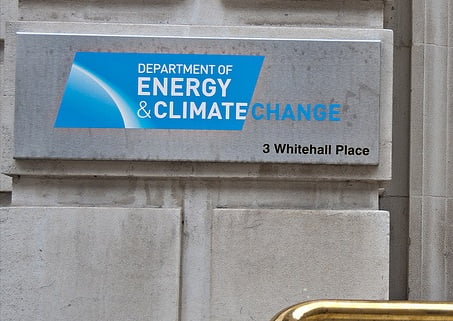

Features
Why supporting innovation is vital for UK energy policy in 2013
Britain is facing an “energy efficiency revolution“. That was the claim brought forward by UK politicians last November, and it is now time to act on it. After all, writes Chris Farrell, the potential is there.
As stated alongside November’s strategy, “success in the energy efficiency sector was highlighted by the Department of Energy and Climate Change (DECC) after it had sales worth £17.6 billion in 2010/11 alone, with growth of 4% each year since 2007, and the government anticipated a further rise in growth in the next few years.”
Much has been said about the importance of creating a ‘culture of innovation’, both in UK and US political thought. However, despite the projected growth figures, recent trends are a cause for concern. Figures released by the World Bank indicate UK is lagging behind in the global innovation stakes, not to mention a new report released in January 2013 by Green Alliance director Matthew Spencer and low-carbon expert Paul Arwas, which argues the UK is “currently failing to adequately nurture the development of potentially game-changing clean technologies” – something I am inclined to agree with.
But why is innovation so important for the energy efficiency sector, and why are we currently failing to get where we need to be?
From Low Carbon Innovation Co-ordination Group’s (LCICG) website: “The UK has ambitious targets to cut carbon emissions while sustaining security of supply and improving energy affordability.
“Delivering this low carbon economy will require a radical transformation of the UK’s energy infrastructure, underpinned by a portfolio of low carbon technologies capable of being deployed cost effectively and at scale. This will require significant investment in innovation and rapid deployment.”
The key issue for DECC, and government as a whole, as I see it is not the financial investment required for research and development of new technologies – public and private sector funding is currently available to ensure new technologies can be researched, despite the World Bank figures. The problem is that the current system needs to do everything possible to support new innovations to market, as soon as they demonstrate a significant benefit to the UK population.
What good is there in researching a new energy efficient technology if it does not get to market and directly benefit UK consumers? Or, as is often the case, takes 10 years to get to market, the so-called ‘Valley of Death’. In the constantly evolving energy efficiency sector, a 10-year wait means many products will be obsolete on arrival.
We need to ensure a system that provides support for inventors and innovators, from development all the way through to deployment of their products. Develop a network or platform to independently verify the benefits of a technology and ensure these benefits cannot be ignored by those in charge. Change regulations to promote the rapid deployment to market of innovations that show a real benefit to the UK. A major stumbling block for many energy saving inventions is that they do not fit into existing legislative categories. What we need is a fundamental change of policy from the government.
David Cameron has called for inventors and entrepreneurs to put Britain back on the map amongst the leading nations, Well, there are several inventors in the energy industry who have designed important technology that, if supported by the government, could put the UK at the forefront of energy efficiency in the world and eliminate fuel poverty in one fell swoop.
As it stands, many beneficial energy efficiency innovations are being held back, seemingly in the interest of the ‘big six’ energy supply companies, to maintain the status quo of less than optimal energy efficiency and maintain record profits. Why not mandate a certain amount of these profits be invested in new energy efficient technologies each year – even if a fraction of a percentage – which would lead to massive growth in new technologies and UK energy security.
As an inventor and entrepreneur myself I know firsthand the difficulties of ensuring a product gets to market and benefits consumers. It is in the government’s best interest to make things easier for innovators, and ensure DECC can meet its targets.
The future of innovation is outside the box. We need the market to recognise and therefore benefit from new energy efficient technologies that can be achieved simply and affordably, but lie outside the status quo. But we can’t do this without government help. Changes need to be made to ensure energy efficient products are supported in legislation, and can therefore benefit consumers and UK energy security. 2013 will be a year to watch, and if energy sector innovation is prioritised, the rewards will be substantial.
Chris Farrell is the managing director of Zenex Energy, a British company founded in 2003 specialising in innovative energy saving products for both the domestic and commercial markets. This post originally featured on his blog, The Green Entrepreneur.
Further reading:
We need a credible green innovation growth strategy
Government launches long-awaited green deal scheme


 Features11 months ago
Features11 months agoEco-Friendly Cryptocurrencies: Sustainable Investment Choices

 Energy11 months ago
Energy11 months agoThe Growing Role of Solar Panels in Ireland’s Energy Future

 Energy10 months ago
Energy10 months agoGrowth of Solar Power in Dublin: A Sustainable Revolution

 Energy10 months ago
Energy10 months agoRenewable Energy Adoption Can Combat Climate Change
























